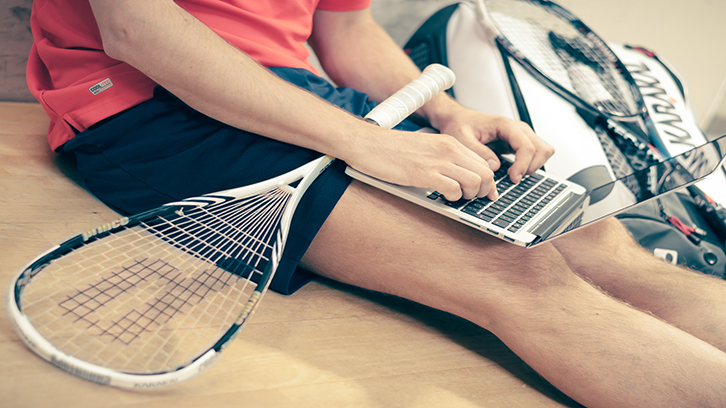Environments that support the combination of education and sport in Europe

An optimal balance between the athletic and the academic or job career (dual career) is one of the main challenges elite athletes face throughout their development. The following research examines the different existing environments in Europe that support the development of a dual career, showing that this demand is well covered in this region, but it has yet to guarantee the growth in other specific contexts according to the diversity of cases and countries. Additionally, environments should facilitate the balance of the life spheres of all athletes, along with trying to promote and preserve their mental health.
In these last few complex lockdown days due to COVID-19, it is interesting to stop and explore how different countries deal with organizing and supporting their professionals. This is the case, for example, with elite athletes. Without intending to start a competition on "which country does it better”, the purpose of this article is to know the different approaches for dealing with similar demands in order to learn from each other.
In relation to this trend of sharing, comparing and reviewing these working methods, the Sport Psychology Research Group (GEPE) from the Sports Research Institute (IRE) has recently participated in the “Ecology of Dual Career: Exploring Dual Career Development Environments across Europe” project. Past dual career research was mainly focused on individual factors but, in this project, the focus has been placed in assessing the influence of environmental factors and the awareness of the environments that support the combination of elite sport with education and/or work. Both the individual and contextual approaches are crucial to enable an optimal balance between the different life-spheres of athletes helping them reach their sports goals without having to drop out of their academic career and/or jobs. Moreover, as a complementary objective, it is also essential to ensure athletes’ psychological well-being and healthy private lives.
Recently, as a part of this project, a taxonomy of dual career development environments in European countries has been published (Morris et al., 2020), including information from Belgium, Denmark, Slovenia, Spain, Finland, Sweden, and the United Kingdom. A documental analysis, interviews with experts, cross-case analyses and, the discussion between researchers from the seven countries have allowed the identification of eight types of environments that facilitate the combination of sport and studies/work. Some environments are found in all countries, whereas others are only present in some of them. The most common environments are (1-2) sports-friendly schools and high schools, (3) sports-friendly universities with specific programs, (4) private club programs, (5) combined dual-career systems, and (6) national sports programs. The less common ones include the (7) defense force programs, and (8) players’ union programs with a range of approaches to supporting dual careers.
In general, this research has identified several dual career development environments, illustrating that this research area is well covered around Europe. Occasionally, there is an overlapping between services and resources when athletes engage in more than one environment (e.g., club and Olympic team). On the other hand, a lack of support for other types of athletes (e.g., young talented athletes or in minority sports) has been found. This lack of resources is also significant when athletes combine their athletic career with an alternative professional career and, even though there are some specific initiatives (e.g., ADECCO’s program), established and consolidated environments and programs that facilitate this combination (e.g., flexibility for professionals/athletes’ working schedule) are yet to be found.
Beyond this overall European perspective, it is necessary to complete the global picture with the specific characteristics of each country and its sports system. In line with this, a GEPE Ph.D. student is currently developing a specific taxonomy of dual career development environments in Spain. At this point, we can anticipate that, besides the results of this study, one of the best news derived from these actions and programs is the growing tendency of professionals from the sports context and applied researchers towards working together with the common intention of promoting the integral development of athletes from an ecological perspective.
Miquel Torregrossa, Anna Jordana, Marta Borrueco, Jose Mejias, Joan Pons, Marina Garcia and Yago Ramis
Department of Basic, Evolutionary and Educational Psychology.
Area of Basic Psychology.
Universitat Autònoma de Barcelona (UAB).
Group of Sports Psychology Studies (GEPE) from the Sports Research Institute (IRE).
References
Morris, R., Cartigny, E., Ryba, T. V, Wylleman, P., Henriksen, K., Torregrossa, M., … Erpič, S. C. (2020). A taxonomy of dual career development environments in European countries. European Sport Management Quarterly, 0(0), 1–18. https://doi.org/10.1080/16184742.2020.1725778

